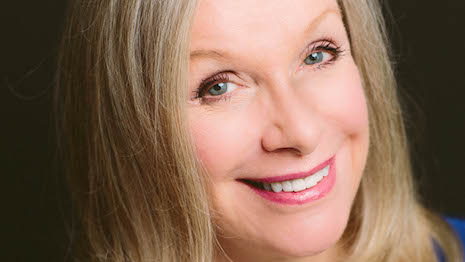
Pam Danziger is president of Unity Marketing
By Pamela N. Danziger
Luxury brands are caught between a rock and a hard place. They keep trying to up their prices by elevating their luxury value proposition, but the foundation on which they are trying to build that perception is shifting out from under them as the consumer’s idea of luxury and theirs no longer align.
Quite simply, luxury has lost its “luxe.”
Not quite in the bag
If it is not so obvious to luxury brands – and in my experience, it is not – it is to the customers on which luxury brands’ future depends. For any of us who make a living talking to and surveying consumers, that fact is as plain as the LV logo on a Louis Vuitton bag.
Take the recent YouGov Affluent Perspective 2019 study surveying 8,000-plus affluent consumers globally at the very top end of the income spectrum in their markets.
For example, the qualifying income for a U.S. consumer was $200,000-plus (8th percentile and above). Those surveyed are not poseurs or “aspirationals,” but consumers with high incomes who can readily afford luxury brands.
Over two-thirds (67 percent) agreed with the statement, “Many mass brands now offer a level of quality comparable to luxury brands.” That is music to the ears of Everlane, which positions itself as “luxury for less,” and a siren call to traditional luxury brands that something is seriously amiss.
Martina Olbertova, who holds a doctorate in media studies from Charles University in Prague and founder of consultancy Meaning.Global, diagnosed the problem and prescribed the cure in a new study entitled, “The Luxury Report 2019: Redefining the Future Meaning of Luxury.”
“There is a gap in meaning and how brands are managed,” Ms. Olbertova said. “Luxury brands continue to rest on their longstanding legacy, but that is devoid of meaning to consumers today. For them it all hinges on personal relevance.”
In other words
Luxury brands are facing a crisis of meaning. The old meanings no longer apply, but many brands have yet to discover consumers’ new meaning to make themselves relevant within that context.
“Luxury brands are naturally value creators,” Ms. Olbertova said. “The meaning or essence of the brand is expressed in a network of symbolic associations that create value for the customer.
“Luxury brands are particularly sensitive to meaning, as their symbolic value far surpasses the functional aspects of the products,” she said.
Luxury brands are in the crosshairs, as the market goes global and culture shifts, because luxury is first and foremost a cultural construct.
“Luxury has earned a highly prominent position in our culture as a powerful catalyst saturating complex personal and social needs,” Ms. Olbertova said.
“To culture-proof the new luxury strategies, brand managers must learn to see and manage brands as dynamic ecosystems of cultural meaning,” she said.
 Martina Olbertova is founder/CEO of Meaning.Global
Martina Olbertova is founder/CEO of Meaning.Global
Breakdown in luxury’s meaning
The breakdown in luxury’s meaning is caused by a shift in how consumers perceive value.
In the current cultural context, the pursuit of owning more luxury things has lost meaning. It has been replaced by a desire to create a state of feeling luxurious, which may have little to do with the actual thing itself.
“We don’t want to own things anymore, because the things actually end up owning us,” Ms. Olbertova said.
“We want to be free, most especially the upcoming generation,” she said. “It is giving rise to the sharing economy, as opposed to the owning economy.”
Ms. Olbertova identifies the following shifts in consumers’ lives that have a profound impact on the meaning of luxury and how they perceive it and make it part of their lives.
Realizing one’s authentic self
People are striving for authenticity in an inauthentic world. Luxury is less about the brands themselves and more about enabling people to become more of who they really are.
“It’s all about what the brand can do for the customers, not about the brand itself,” Ms. Olbertova said. “That shifts the focus of luxury from what the brand is to helping customers become more of who they are.”
Take the Louis Vuitton Monogram handbags. Such a bag turns the owner into a walking billboard for the Louis Vuitton brand. How does that empower the customer in their desire to express individuality and self-expression?
On the other hand, Bottega Veneta with its famed “sans logo” strategy is called out by Ms. Olbertova as a luxury brand with “discreet style and labeling” that empowers the customer through its “codes of timelessness, craftsmanship and simplicity.”
Bottega Veneta is rich with symbolic meaning, not in-your-face extravagance. It is at odds with current consumer drive to own fewer things and the ones her or she owns to be of lasting quality.
“It reverses the industry dynamics away from aspiring to own brands toward empowering people and their own creative expression,” Ms. Olbertova said.
Creating meaningful experiences and a richer life
The rising wealth class means more people can afford luxury, but basic human psychology gets in the way of finding satisfaction in that. The more things we can buy, the less that stuff means to us.
“We are moving away from the tangible aspects of personal luxury to the intangibles,” Ms. Olbertova said.
Instead we are searching for, “the unique and personalized experiences that have the potential to better and transform our lives,” she said.
This pursuit of meaning is creating opportunities in experiential luxury.
“Unlike material luxury, experiences are unique to each individual and are irreplaceable and unrepeatable as they are bound to a specific moment in time,” Ms. Olbertova said.
The opportunities are obvious, such as dining and travel, and not so obvious, including self-care and self-discovery.
For example, Selfridges created a Fragrance Lab that allowed customers to explore different sensory chambers to discover new sensations. Afterwards they could work with fragrance experts to create a personal, signature scent.
Gifting too is a way to elevate luxury goods into meaningful, memorable experiences.
Ms. Olbertova describes the rituals of gift giving as increasing one’s feeling of self-worth, while also fostering deeper personal relationships.
Democratization of luxury that finds luxury in the everyday
This reflects a turn away from excess, rarity and opulence to discovering the luxurious meaning in everyday moments.
People are looking for luxury as part of their daily lives, thanks to their growing affluence along with instant access to shopping via the Internet. This desire is also fostered by the new, more diversified definitions of luxury beyond aspiration to have and to own.
“In an age of market oversaturation, the new savvy consumers are becoming more of shopping connoisseurs as they look for premium quality to meet and satisfy their own essential needs,” Ms. Olbertova said.
For example, luxury meets the everyday in lingerie brand PrimaDonna, which taps women’s desire for everyday comfort combined with indulgent sensuality. It is also reflected in the luxurious, sensual experience of a box of Godiva chocolates.
Everyday experiences such as cooking and bathing are elevated beyond the ordinary and given new meaning through luxury kitchen appliances, high-end kitchen and bath fixtures and fittings and stone countertops and floors. Yes, these can be beautiful, even opulent, but the real meaning comes from the special feelings people get using them.
New minimalism and drive for fewer, better things of lasting quality
Consumers are finding meaning in a new minimalism, or where less really is more. Perhaps for luxury brands this is the most disruptive shift, yet the most instructive too.
“The key codes of the new luxury go hand in hand with our increased need for authenticity and simplification,” Ms. Olbertova said.
With a commitment to a sustainable lifestyle that minimizes their environmental impact, consumers are rejecting the materialistic foundation of the consumerist lifestyle, or what Ms. Olbertova describes as the “waste culture.”
This calls on luxury brands to invest in creating long-lasting, higher-quality products produced to the highest specifications in the most responsible way. Thus luxury customers will be able to live the life they want to live.
“Successful luxury brands are realizing that by advocating for social and cultural values their customers care about, they can grow their business organically while remaining authentic to their inner essence,” Ms. Olbertova said.
From the consumer’s perspective, Ms. Olbertova said, “It’s not about buying into a rare lifestyle, seeking society’s approval or fitting in anymore, but manifesting personal values and beliefs through our informed choices of luxury.”
As an industry, luxury has traditionally elevated value in its products and its production to its highest form of expression, but today Ms. Olbertova believes the drive for profit and sales is leading many to “pander to the masses and become more like high street in order to be more culturally relevant.”
Rather, she advises, “They should be doing the exact opposite. By inflating the symbolic value, luxury brands will create something that is seen as luxury and feels like luxury, that people can actually value long-term over time.”
Steps to create new meaning
Ms. Olbertova’s study is a rich and rewarding read that challenges luxury brands to ask profound questions about their place in the current cultural context and their role in the future.
Indeed, she realizes that crafting a meaningful point of difference for a luxury brand is harder than ever due to the overly complex and rapidly changing cultural context. But it is essential today and for tomorrow.
The search for a luxury brand’s meaning begins with a deep understanding of meaning for the consumer and then moves into the corporate culture where it must take root.
Luxury brands will be made culturally relevant by exploring their essential essence and imbuing new meaning that stays true to the brand’s heritage and legacy, but translates that meaning to align with the values of consumers today, not yesterday. Without it, “the legacy value of luxury brands will soon become obsolete,” Ms. Olbertova warns.
This new deeper, more culturally relevant meaning must be instilled at the creative stage, reflected in brand strategy, and then carried forward to product and marketing execution.
Too often, Ms. Olbertova believes, this new meaning, if it is there at all, gets lost in the shuffle.
IT IS A changing world and luxury has to change with it by defining new meaning in a positive, life-affirming way for the customers.
“This is why luxury brands need to explore new avenues for growth to secure future relevance, create authentic value and retain their luxurious status to further increase brand valuation and equity,” Ms. Olbertova said.
Please click here to download a PDF copy of the report, "Redefining the Future Meaning of Luxury"
Pamela N. Danziger is Stevens, PA-based president of Unity Marketing and Retail Rescue, and a luxury marketing expert. Reach her at [email protected].
 Pam Danziger is president of Unity Marketing
Pam Danziger is president of Unity Marketing
 Martina Olbertova is founder/CEO of Meaning.Global
Martina Olbertova is founder/CEO of Meaning.Global